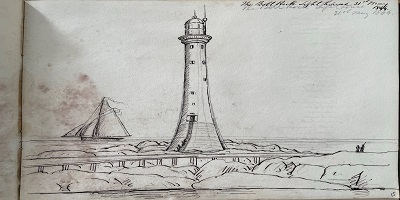New records reveal lives of lightkeepers
New records reveal lives of lightkeepers

The employment records of more than one thousand lighthouse keepers are now available to see online for the first time on genealogy website ScotlandsPeople.
Over 2,000 new scanned images of the records of the Northern Lighthouse Board give details of over 1,300 lightkeepers working in 92 lighthouses between 1837 and 1921.
Lightkeepers had hard working lives: long days and nights maintaining light and fog signals, as well as cleaning and ensuring the upkeep of their isolated stations in harsh conditions.
Many keepers lived in cramped spaces for long periods, often with only basic washing facilities or toilets. They could be isolated from family and friends while they did their crucial work maintaining the safety of shipping around the Scottish coast
The records cover all of Scotland, from Muckle Flugga near Shetland to the most southerly at Drumore, Mull of Galloway. They also include Bell Rock, the world’s oldest working sea-washed lighthouse, and the three keepers of the Flannan Isles who disappeared following a storm in 1900, presumed drowned.
Jocelyn Grant, NRS Outreach and Learning archivist, said:
“The last lighthouse was automated in 1998 and these records shine a light on the working lives of over 1,300 men in a profession that has now mostly passed into history.
"The Northern Lighthouse Board records are frequently requested by visitors to our buildings. If your ancestor worked in a Scottish lighthouse, there’s a good chance you will find them here."
"This is the latest in a series of popular record sets added to the National Records of Scotland genealogy service ScotlandsPeople as part of our wider programme making more of our archive holdings accessible to people across the country and around the world."
ScotlandsPeople is the country’s official family and social history research website. Record indexes are free to search, with charges for viewing some images.